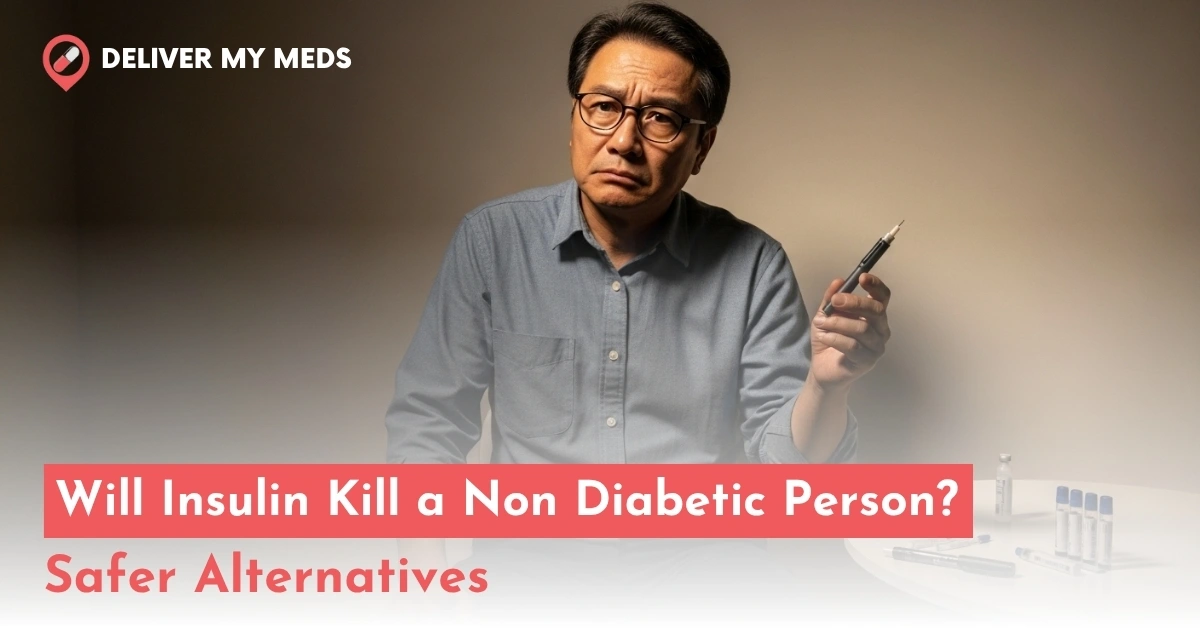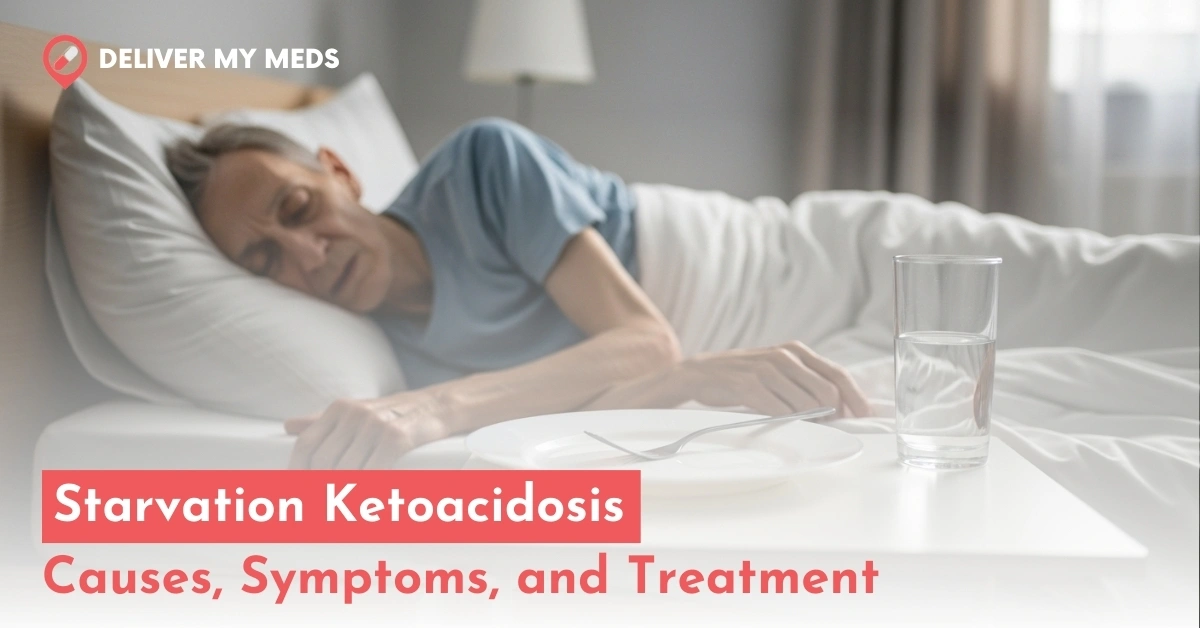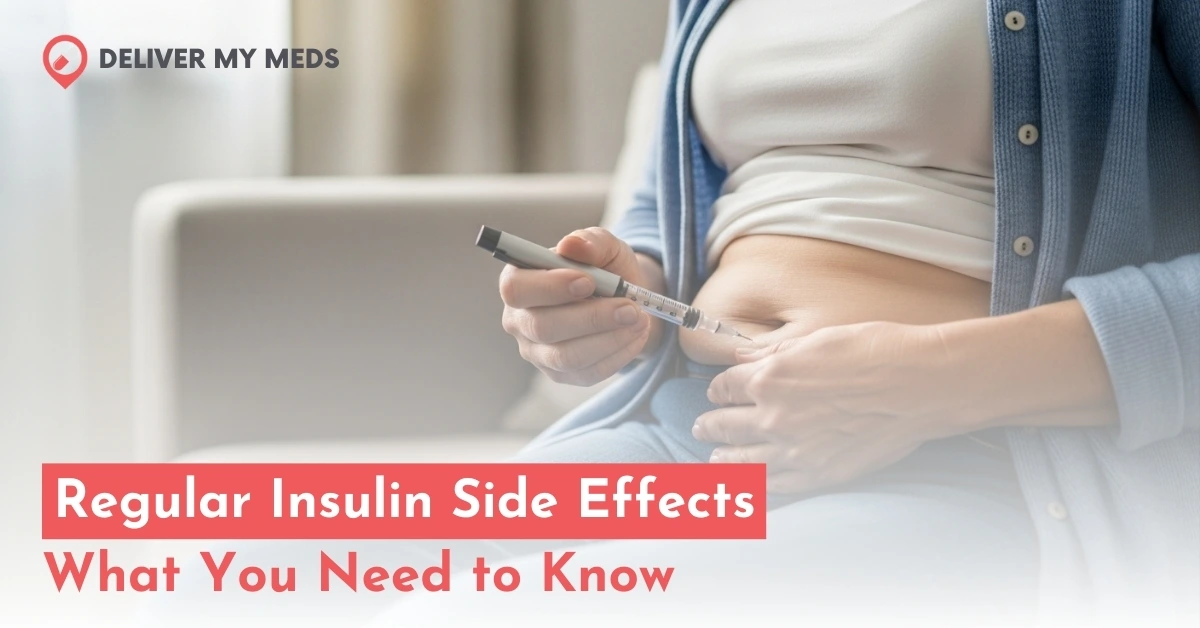
In a world where off-label drug use is becoming so common, especially for weight loss, it’s crucial to separate medical facts from myths. One of the most misunderstood substances in this regard is insulin. Keeping in mind that the side effects may not be extremely adverse, individuals try to consume it. However, many people still want to confirm its extreme negative effects, and the major question of concern is ‘Will insulin kill a non diabetic person?’
The short answer is yes — in certain amounts, insulin can kill a non diabetic person. It’s a life-saving hormone when used appropriately in diabetes care, but extremely dangerous if used irresponsibly, especially for purposes like weight loss.
Let’s unpack what the science and medicine say about what happens if you take insulin without diabetes, and whether this practice is ever medically approved.
Working of Insulin: An Overview
Insulin is a hormone produced by the pancreas. This hormone (insulin) allows consumed glucose (sugar) to enter your body’s cells for energy. People living with diabetes either become insulin resistant (in type 2 diabetes) or their body simply stops producing insulin (type 1 diabetes). Due to this impaired function, they require insulin from external sources.
For non-diabetics, endogenous (the one naturally produced in the body) insulin works fine, so taking additional insulin disturbs an already balanced system.
What happens if you give insulin to a non diabetic? Taking insulin when your body is already producing enough and you are not insulin resistant either, results in your blood glucose going too low, leading to hypoglycemia.
Mild hypoglycemia can cause dizziness and confusion; severe hypoglycemia can cause seizures, coma, and even death by insulin.
Is Insulin Use by Non-Diabetics FDA Approved?
No. The FDA does not approve insulin for use in non-diabetic individuals for weight loss or performance enhancement. Off-label use is possible under physician supervision in rare cases (e.g., for metabolic research or polycystic ovary syndrome in insulin-resistant individuals), but even then, it’s controversial and not widely recommended.
When Might Insulin Be Used in Non-Diabetics?
Referencing Dr. Ron Rosedale’s metabolic review, insulin might theoretically benefit non-diabetics with high fasting insulin levels and metabolic syndrome, but this is investigational at best and not standard medical practice.
Example Table of Insulin Types (Approved vs. Unapproved for Non-Diabetics)
| Insulin Brand Name | Type | FDA-Approved for Non-Diabetics? | Typical Dose in Non-Diabetics (if any) |
| Lantus (glargine) | Long-acting | No | Not Recommended |
| Novolog (aspart) | Rapid-acting | No | Not Recommended |
| Humulin R | Short-acting | No | Occasionally used in trials |
| Afrezza | Inhalable insulin | No | Not Recommended |
As seen above, no insulin is approved for non-diabetic use, though research scenarios have experimented with low doses (1-2 units post-meal), which is extremely risky without continuous glucose monitoring.
Don’t Worry – Approved Options for Chronic Weight Management:
Ever heard of GIP (glucose-dependent insulinotropic polypeptide) or GLP-1 (Glucagon-Like Peptide-1) medications? Mounjaro (Tirzepatide) belongs to this class of medication, and Ozempic (Semaglutide) belongs to glucagon-like peptide 1 (GLP-1). Check out your eligibility now with Deliver My Meds.
Correct Way of Using Insulin for Weight Loss
There is no “correct” way for non-diabetics to use insulin for weight loss. The risk is much higher than benefits. While some fitness enthusiasts or bodybuilders might attempt micro-dosing post-meal to shuttle glucose into muscle cells, this approach can backfire and result in hypoglycemic shock.
Even in supervised settings, insulin must be precisely timed with carbohydrate intake, and requires continuous monitoring. Without diabetes, the body already makes enough insulin to do this naturally.
Recognising Negative Effects of Insulin in Non-Diabetics
Here’s how you know insulin may be acting negatively:
- Sweating, shakiness, dizziness
- Heart palpitations or blurred vision
- Cognitive confusion, anxiety
- Loss of consciousness
If untreated, these symptoms can lead to death by insulin. This is why giving insulin without indication can be extremely dangerous.
Are you living with diabetes?
If yes, you may be able to claim a continuous glucose monitor (CGM) such as Freestyle Libre 3 Plus, which monitors your glucose 24/7 without needing multiple finger pricks.
What Happens If You Give Insulin to a Non Diabetic?
A common question circulating now a days is, ‘What Happens If You Give Insulin to a Non Diabetic?’. Upon looking at user’s feedback, it is evident that even a single unit of rapid-acting insulin in a non-diabetic person caused hypoglycemia within 30–60 minutes, requiring urgent carbohydrate consumption.
One user wrote:
“I tried it after reading some forums—took just 2 units after a carb-heavy meal, and within an hour I was shaking and slurring my words. Never again.”
These are not isolated cases. A published forensic study in Forensic Science International even documented a suicide via insulin overdose in a non-diabetic.
Conclusion:
Consumption of insulin in non diabetics can cause hypoglycemia, thus, carrying certain risks, including but not limited to sweating, heart palpitations, and even non-consciousness. If you or your loved ones are struggling to get rid of chronic obesity, you may want to check eligibility for medications like Ozempic or Mounjaro – fill out this from here to check out your eligibility with Deliver My Meds.
Disclaimer: This is only for informational purposes. Before taking any medical action, it’s recommended to always consult your doctor.



